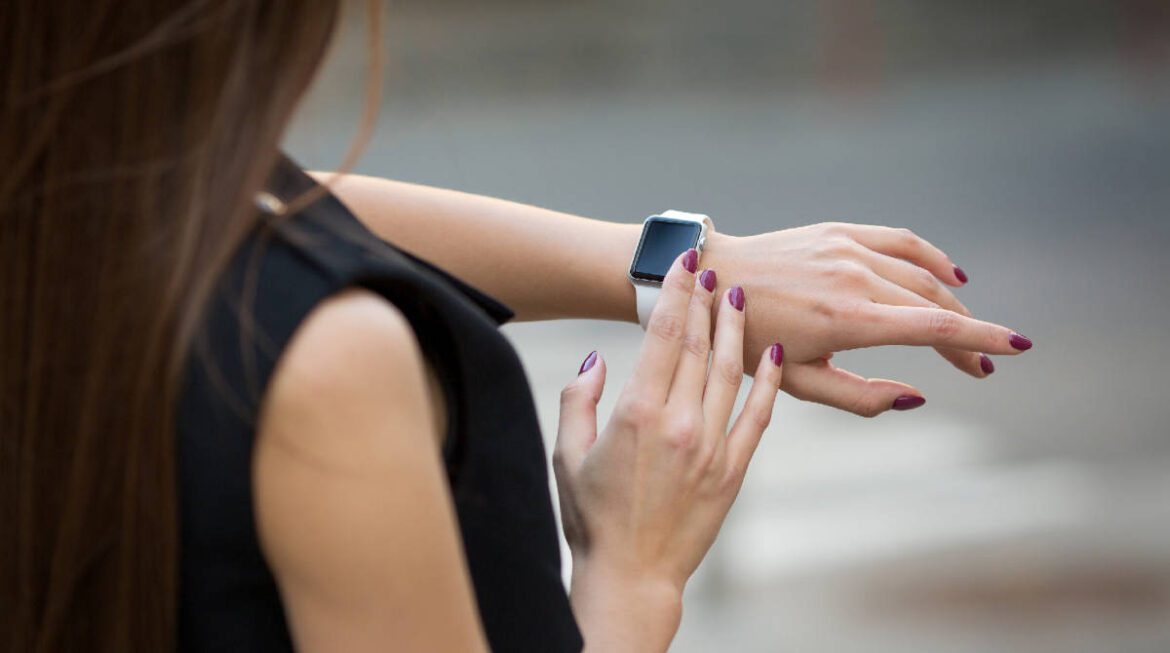In a perfect world, we would all age gracefully, not grapple with challenging diagnoses, and live a life like those featured in Netflix’s recent documentary The Blue Zones, full of healthy habits, sharp minds, close family ties, and busy social lives. But for those of us where life takes turns and we find ourselves or our parents in need of serious health monitoring, there are options that can give you and your family peace of mind.
Wearable technology can provide benefits that enhance our overall well-being and quality of life. Many of us on this journey of life wear Apple Watches or Fitbits and have embraced the ability to track vital signs such as heart rate, blood pressure, and activity levels. Sleep monitoring has helped innumerable people in have a better grasp of their sleep habits and needs.
This tech has come a long way in terms of design and aesthetics. You see the watches on the wrists of your friends and fashionable women out and about the town. Hermes has a collaboration with Apple, and the newest slim version of the watch is chic. There is a real cottage industry of companies designing unique bands for watches, and all sorts of designer collections. If not a watch, there are a variety of discreet wearable devices like shoe insoles or tucked away as a beautiful necklace.
In some cases, wearables are critical. For anyone managing dementia, GPS-enabled wearables can help caregivers and family members keep track of a senior’s location.
And, if we’re really honest with ourselves, or have seen firsthand with our own parents and grandparents, eventually, we could all benefit from wearing devices that can detect falls. We’ve all likely seen the iconic commercials, but Life Alert is a life saver. Knowing that the device will alert emergency services or caregivers if you’ve fallen and are unable to get up is invaluable. This feature can be lifesaving, as falls are a common cause of injuries among the elderly.
While there are undeniable benefits, privacy concerns do exist. There are serious ethical questions, worrisome issues regarding data collection by complex AI programs, and serious security concerns for your most sensitive information. These devices carry massive amounts of user data — including personal information about the users — and they are targets for security breaches and data exfiltration.
Be sure to take steps to protect your data as much as possible, as you should across all your devices and platforms. For those willing to move past the privacy concerns, these devices can really make life easier.
Utilize wearable technology to stay connected with the elderly people in your life. Aging isn’t easy, and keeping an eye on the well-being of those you love will help streamline caregiving. Medication reminders and alerts help prevent missed doses, medication errors, and complications related to medication management. Feel at ease with parents living alone knowing that they will get the help they need in an accident.
Embracing wearable technology opens doors to a future of health management for seniors and their loved ones. From tracking vital signs to stylish designs, they truly can make a critical timing difference in an emergency, and they can help anyone manage their health. While protecting sensitive data is paramount, wearable technology can significantly enhance the quality of life for seniors and caregivers alike.

